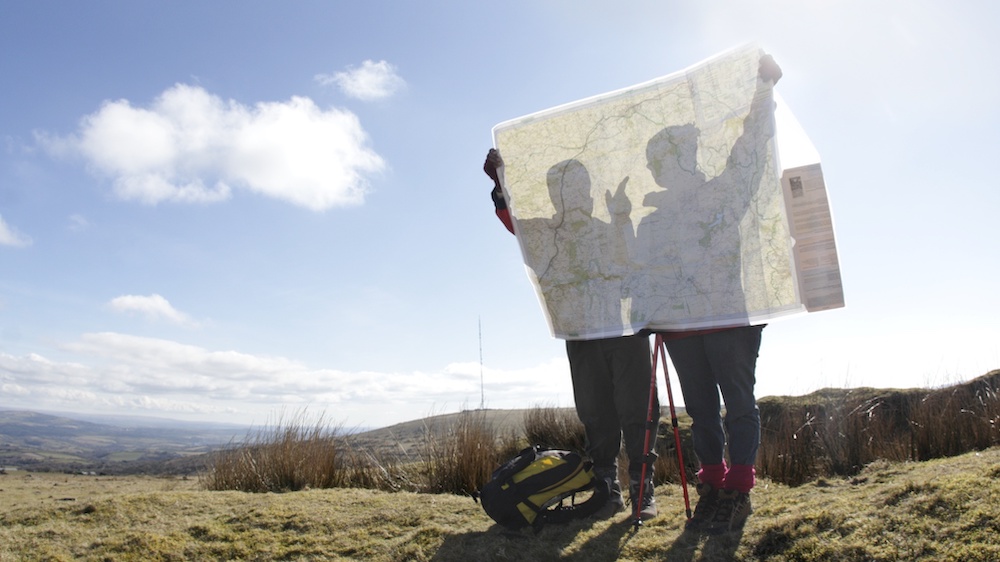If you’re interested in sharing your opinion on any cultural, political or personal topic, create an account here and check out our how-to post to learn more.
Opinions are the writer’s own and not those of Blavity's.
____
When I tell people that Oregon has a Black population of just over 2%, they often stare at me. They heard me clearly, but it just doesn’t make sense to them. “Only 2% of all Oregonians are Black? Why?”
During the 18th century, Oregon excluded Black people from legally living in the state due to harsh, inhumane laws created for enforcement. Although these laws no longer exist, the spirit of the original intention in creating an unwelcoming atmosphere for Black people in Oregon is still present in the hearts of some residents.
If you speak to any Oregonian, they would say that nature plays a major role in their lives due to our proximity to some of the best outdoor spaces in the world with the copious amount of mountains, lakes and beaches right on our doorstep. But for members of the BIPOC community, there are still several obstacles in accessing these spaces due to the unfortunate reality of racism that remains embedded in American culture.
A few years ago, I was told that I was not welcome in Oregon by a group of people I encountered while hiking a trail with my then-young children. We had another brief, but potentially dangerous, encounter with others being verbally abusive to myself and my family while on a popular, crowded trail surrounded by dozens of hikers. It’s a terrible feeling knowing that when you and your children are being threatened, you are their sole protection, and you weren’t prepared to defend against them.
Although these encounters happened years ago, they were traumatic experiences. Some of the rage I felt was for myself. I felt like a mother with poor judgment. I felt ashamed for taking my vulnerable children outdoors. I felt enraged that something that had been joyful and precious to our family for years had been not only violated, but permanently stained.
Although I felt alone at the time, I knew there had to be other Black Oregonians with similar experiences.
This is why I started PDX People of Color Outdoors in 2017 — to connect with other people of color, to share our love of the outdoors and work towards building a more racially equitable and safer environment for generations to come. Since then, we’ve even become a non-profit so we could expand our mission to drive change beyond just the Portland community.
In Portland, gentrification has destroyed Black communities, scattering BIPOC throughout the metro area. With the rise of the pandemic and the murder of George Floyd, the BIPOC community has been hit even harder over the past couple of years. Racism and social injustice have been exacerbated under the current political climate, fueling horrendous acts against BIPOC. Local stories have especially had a profound effect on me, so much so that I took a temporary break from my career and invested more time and money into PDX People of Color Outdoors. This community has become my lifetime commitment so we can all work together to change these conversations.
The PDX People of Color Facebook group has become a neighborhood center as well as an online community. It’s a safe place for members to share their experiences and ask for advice. People have also used the group to find roommates and realtors, web designers and walking buddies, as well as new trails and the latest places to eat.
In 2020, during the height of quarantine, we hosted a weekly Zoom gathering where people shared concerns, jokes, recipes and homeschooling resources. We also hosted 30 outdoor gatherings and have gone on to host 44 events this year, including our first two overnight camps. These camps were a turning point for many of us, our families and our friends. Between climate change lessons, star gazing, exploring trails, eating great food and playing games around the fires, these events have created memories that will last a lifetime and are helping to create a new relationship the BIPOC community has with the outdoors. In just a short amount of time, we developed into a true sense of belonging within Oregon.
We think of our group’s outings as foundational building blocks for helping BIPOC create a habit of spending time outdoors. We want to include everyone, and we have learned that when we make repeat excursions to the same place, it gives the community a sense of familiarity and comfort. Our goal is to help reinvigorate the larger conversation on environmental equality that is deeply rooted in institutionalized racism, and create change for BIPOC communities to become nature enthusiasts and grow respect for all that mother nature has to offer.
Four years ago, we were usually the only BIPOC present wherever we went. While that is still the case in many new places we explore, we have started to see a shift in the places we have repeatedly visited. At the same time, those who used to look at us warily when we first started visiting these places, now wave and smile. We are now perceived as a regular part of that outdoor community because we have made it so.
And four years from now, we plan to have our own land to enjoy and share. Until then, we'll be outdoors making space for ourselves in nature.
